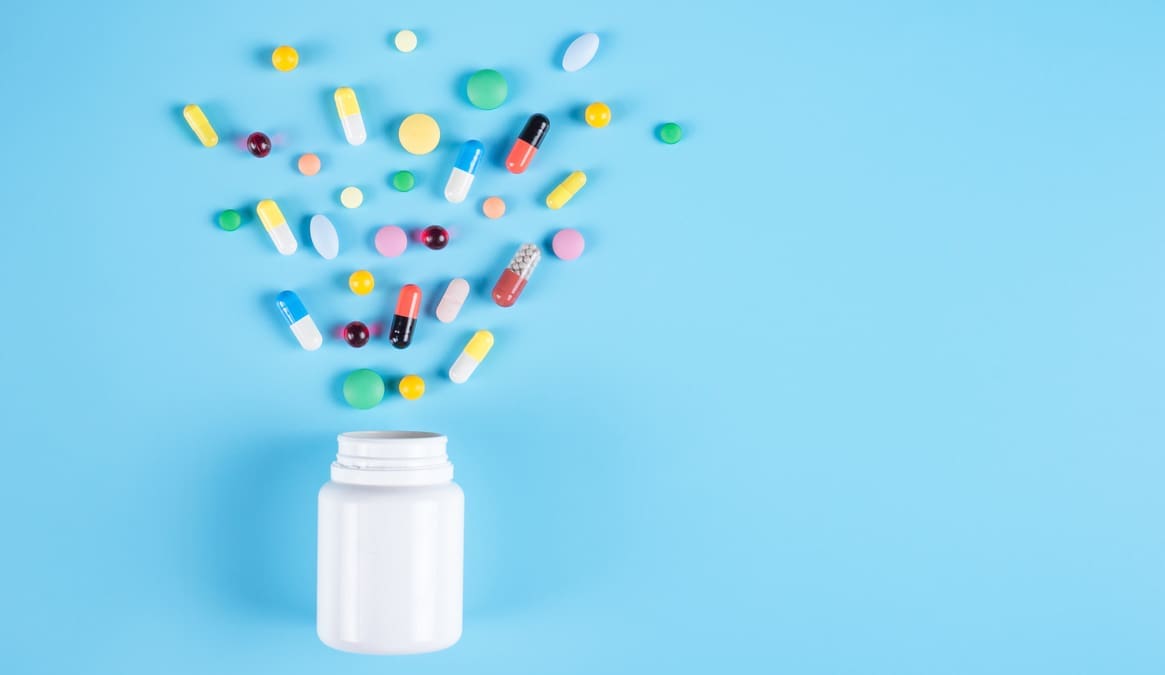If you’ve been looking into mental health treatments such as transcranial magnetic stimulation, you may have asked yourself, “Can psychedelic therapy help treat depression?” The short answer is yes, psychedelic therapy can treat depression if used correctly, but more research is required before it is conclusive. In this post, we’ll review the current research, safety, and effectiveness of psychedelic therapy.
How Psychedelic Therapy Works
In mental healthcare, psychedelic therapy describes the process of a patient taking a low dose of a psychedelic substance while in the presence of a therapist. During a session, patients are asked to asked to share their feelings and experiences and not withhold any negative emotions (grief, fear, anger, etc.) that they may experience. A few of the key psychedelics used in this therapy include:
- Lysergic acid diethylamide (LSD)
- Methylenedioxymethamphetamine (MDMA, also called Ecstasy or Molly)
- Psilocybin (the primary substance found in “magic mushrooms”)
These substances have novel mechanisms of action that are different from conventional antidepressants, such as selective serotonin reuptake inhibitors, and can produce a wide range of cognitive, perceptual and emotional effects, including empathy.
Psychedelic Therapy in Depression Treatment
Psychedelic substances are not generally associated with official medical practices. However, because this alternative therapeutic practice offers a novel paradigm in which a short-acting compound imparts profound alterations in consciousness and can possibly facilitate long-term remission of depressive symptoms, it is a rising trend in the mental healthcare field. For example, the Food and Drug Administration (FDA) named psilocybin therapy as a “Breakthrough Therapy” for the treatment of both treatment-resistant depression and posttraumatic stress disorder (PTSD) in 2019. This designation is meant to formally promote the research and development of promising therapeutic practices that are undergoing clinical trials. Psychedelic therapy is also currently being researched in clinical trials at research centers such as Johns Hopkins Medicine and by medical professionals at University Hospital in Basel, Switzerland.
Is Psychedelic Therapy Safe?
As with any treatment for depression and other psychiatric conditions, there are both positive and negative aspects of psychedelic therapy that anyone seeking depression treatment should consider:
Positive Clinical Results
In clinical trials aimed at treating major depressive disorder (MDD), psychedelic therapy has produced largely positive results. A literature review published in the May 2020 issue of the American Journal of Psychiatry found that both MDMA and psilocybin had demonstrated largely positive results in the treatment of PTSD and treatment-resistant depression, specifically. The review noted that research surrounding LSD and ayahuasca suggests that these psychedelics need more research to determine their viability in the treatment of various psychiatric disorders and severe symptoms, including suicidal ideation.
Potential Drawbacks
Despite the largely positive clinical results surrounding psychedelic therapy, some medical professionals believe that more research is necessary to determine whether or not psychedelic therapy is a viable option for the treatment of depression and other psychiatric disorders. It’s also important to consider the legal factors regarding this practice; because psychedelic substances are still labeled by the United States Drug Enforcement Administration (DEA) as Schedule 1 drugs, the general practice of psychedelic therapy is currently considered illegal under federal law.
Social Factors
For some, psychedelic therapy may seem unprofessional or taboo. Since substances like MDMA, LSD, and magic mushrooms are used recreationally, some people may be highly skeptical of therapeutic practices that utilize these substances. Further, this reputation of psychedelics may mislead others into believing that psychedelic therapy is a personal practice that doesn’t require professional intervention. In both instances, it is important to recall that psychedelic therapy is being clinically tested and researched under safe, professional conditions. When these substances are not professionally sourced or utilized, they can inflict trauma upon users, and are therefore not meant to be administered by anyone other than licensed medical professionals.
The Future of Psychedelic Therapy in Depression Treatment
Though federal laws currently prevent psychedelic therapy from becoming a common and accessible practice for depression patients, state laws allow for this treatment to be researched and implemented at select clinics in a limited number of states. In the present day, patients who are willing and able to seek out psychedelic therapy will need to understand the risks before dedicating themselves to this form of treatment.
Keep Up With the Latest News in Depression and Anxiety Treatment
Unlike Psychedelic Therapy, TMS has been FDA approved for over a decade and has become progressively more of a mainstream treatment option, especially for depression, because of its proven efficacy and safety. Mid City TMS is here with an expert TMS staff who can help you explore your options for depression and anxiety treatment. If you’ve been looking for a non-invasive and effective mental health treatment option, let us help you learn more about TMS therapy and the latest research in the mental health field. Visit our contact page to talk to Mid City TMS about our depression treatment services and whether you could benefit from TMS therapy.



